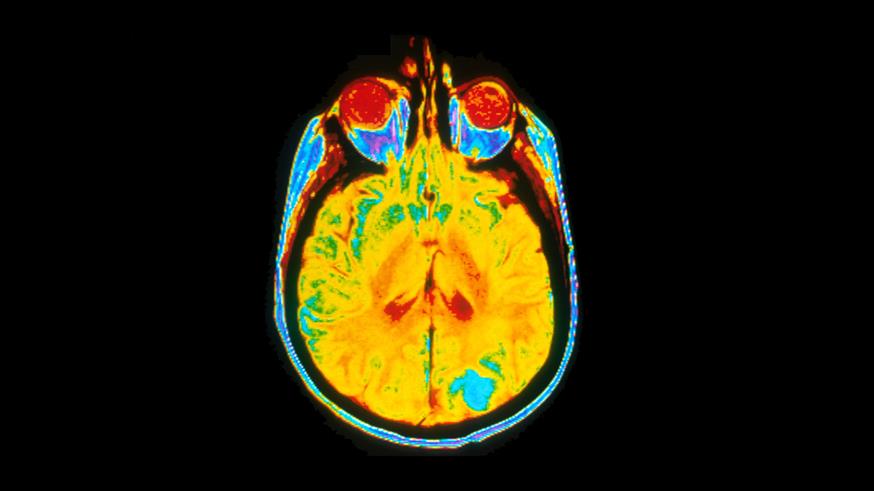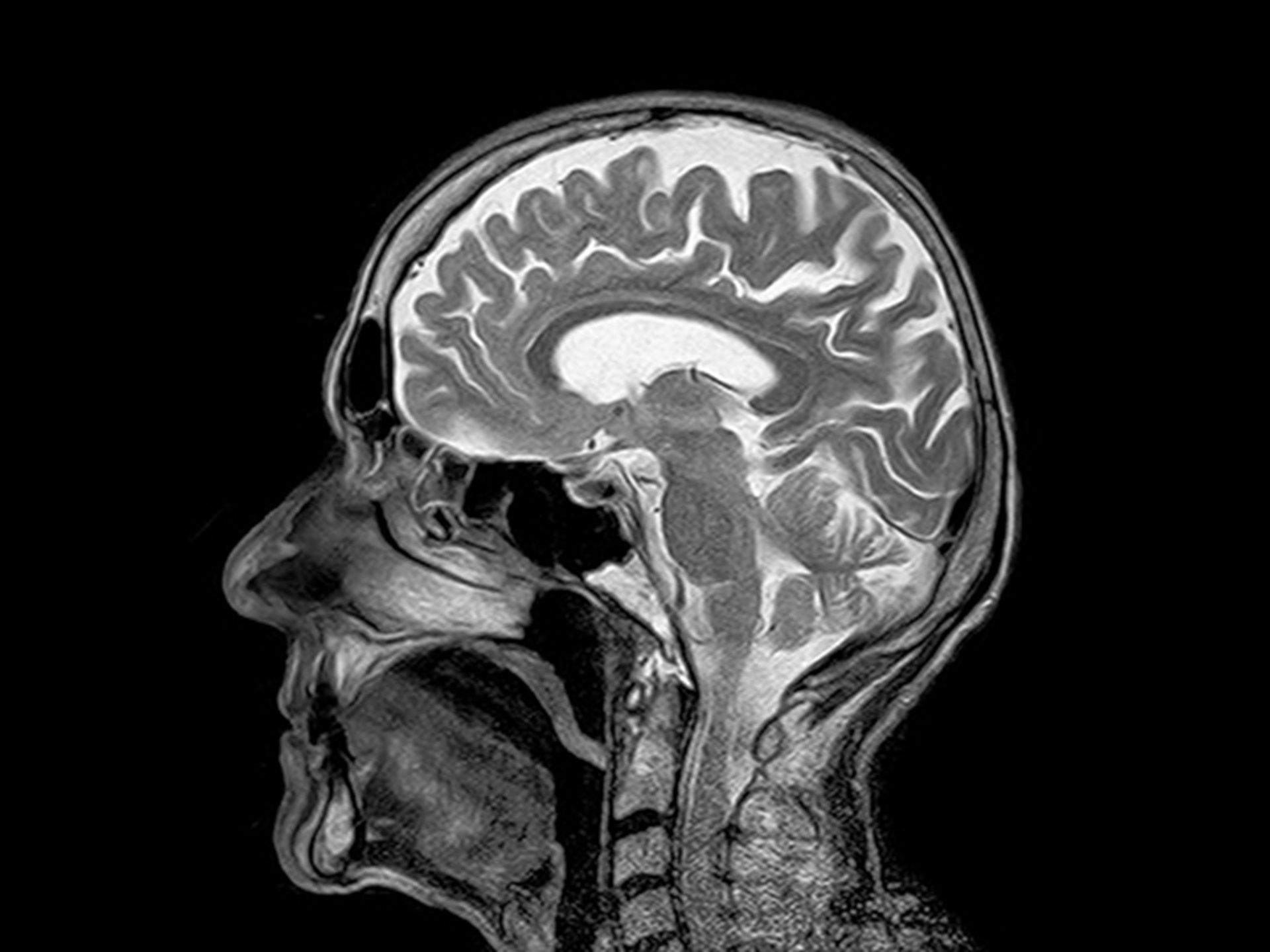
An image of a human brain using a magnetic resonance imaging (MRI) machine
Scientists have uncovered a treasure trove of information about the genetic causes of brain cancer in the largest-ever study of the disease.
Their research has revealed 13 new genetic errors associated with an increased risk of developing glioma – the most common form of brain cancer.
One of the genetic changes increases risk by as much as a third and the others by at least 15% each. That means the new information could be used to pick out some people at substantially increased risk of developing the disease.
Scientists at The Institute of Cancer Research, London, along with colleagues in Europe and the US, led the international study of more than 30,000 people with and without glioma. Their aim was to find sequence changes in DNA among these people passed on from their parents that increase risk of the disease.
Gliomas account for around 40% of all brain tumours, there is currently no reliable way of detecting the disease early and current treatments are not particularly effective.
Detecting those at risk
The new research reveals a wealth of new information about what predisposes a person to gliomas, and could in future allow doctors to monitor those most at risk, diagnose the disease earlier, and lead to the discovery of badly needed new drugs.
The study is published on Monday 27 March 2017 in the prestigious journal Nature Genetics, and was funded by the National Institutes for Health in the US, with additional support from UK charities – Cancer Research UK, Wellcome and the DJ Fielding Medical Research Trust.
The researchers carried out two new genome-wide studies and combined the results with six previous studies in a ‘meta-analysis’ – involving in total 12,496 cases of glioma and 18,190 people without.
The size of the study meant it was able to detect 13 previously undiscovered genetic changes that increased the risk of glioma. These were found to affect a variety of cell functions, including nerve cell division, DNA repair, cell cycle control, protein production and inflammation.
Genetic effects assessed
Scientists at the ICR and their colleagues found that different sets of genes influence a person’s risk of developing the two subtypes of glioma – glioblastoma and non-glioblastoma.
For example, one of the DNA changes influencing activity of the gene HEATR3 increases the risk of glioblastoma – a particularly aggressive type of glioma with an average survival of only 10–15 months after diagnosis – by 18%. But it has a much smaller effect on the risk of developing non-glioblastoma.
As well as identifying new genetic changes, the team generated even stronger evidence for the roles of DNA errors in the genes they previously identified as being associated with glioma and other cancers – including p53, EGFR, and the genes TERT and RTEL1 which function to protect the ends of chromosomes.
The study doubles the total number of genetic changes associated with risk of glioma – taking it up to 26.
Study co-leader Professor Richard Houlston, Professor of Molecular and Population Genetics at the ICR, said: “It’s been exciting to have been involved in such a gigantic study including cases of brain cancer from all over the world. We’ve uncovered a treasure trove of new information about the genetic causes of glioma brain cancers.
“Understanding the genetics of glioma in such detail allows us to start thinking about ways of identifying people at high inherited risk, and will open up a search for new treatments that exploit our new knowledge of the biology of the disease.
“The changes in the way we think about glioma could be quite fundamental. So for example, what we thought of as two related sub-types of the disease turn out to have quite different genetic causes which may require different approaches to treatment.”
Professor Paul Workman, Chief Executive of the ICR, said: “The genetics of glioma had been poorly understood, but this huge and excellent new study at a stroke gives us the same kind of knowledge of the disease as we have with other, more intensely studied cancers. It’s a significant step forward which I believe will have clear implications for our ability to identify people at high risk, and to treat them.”
